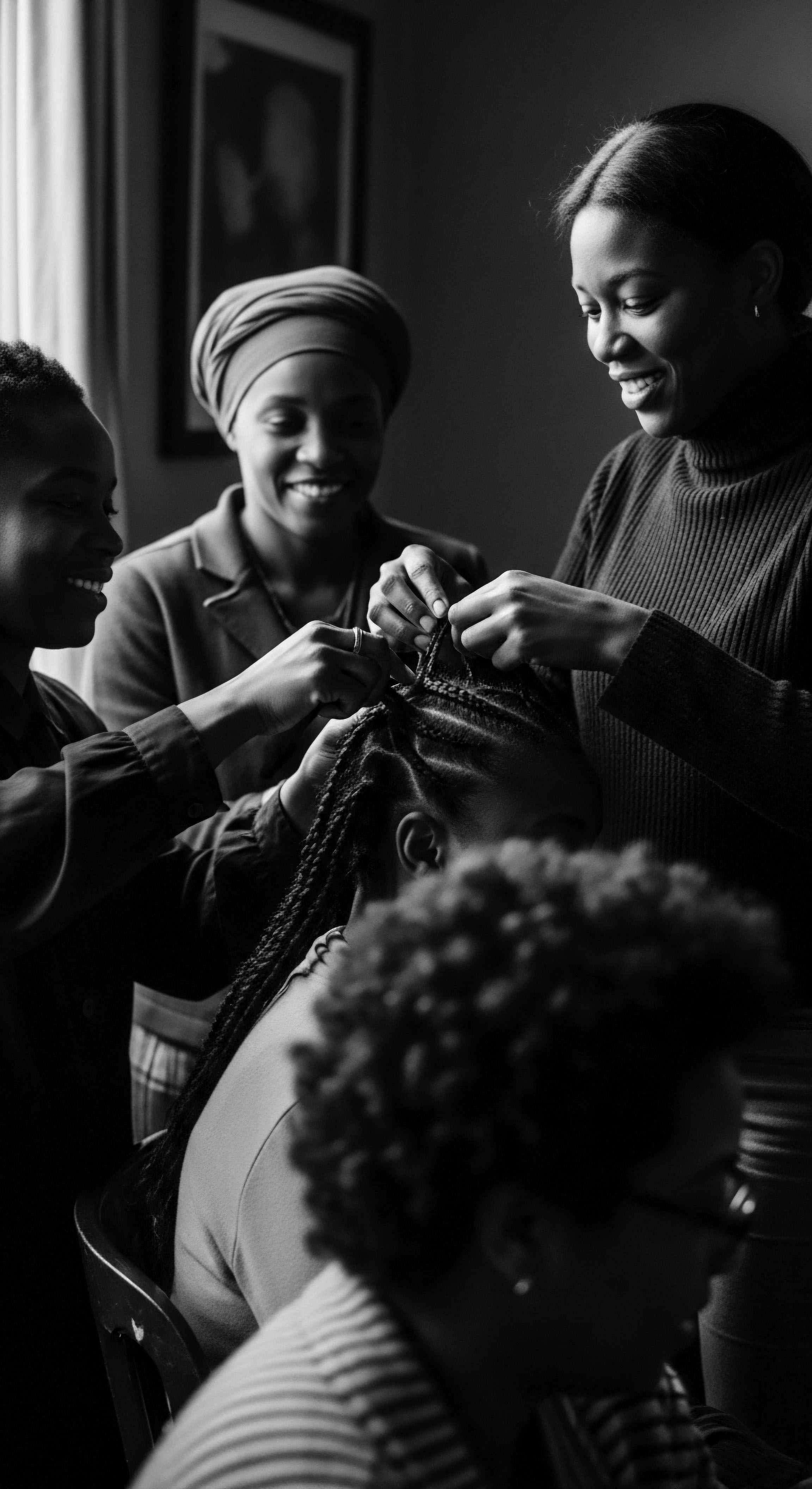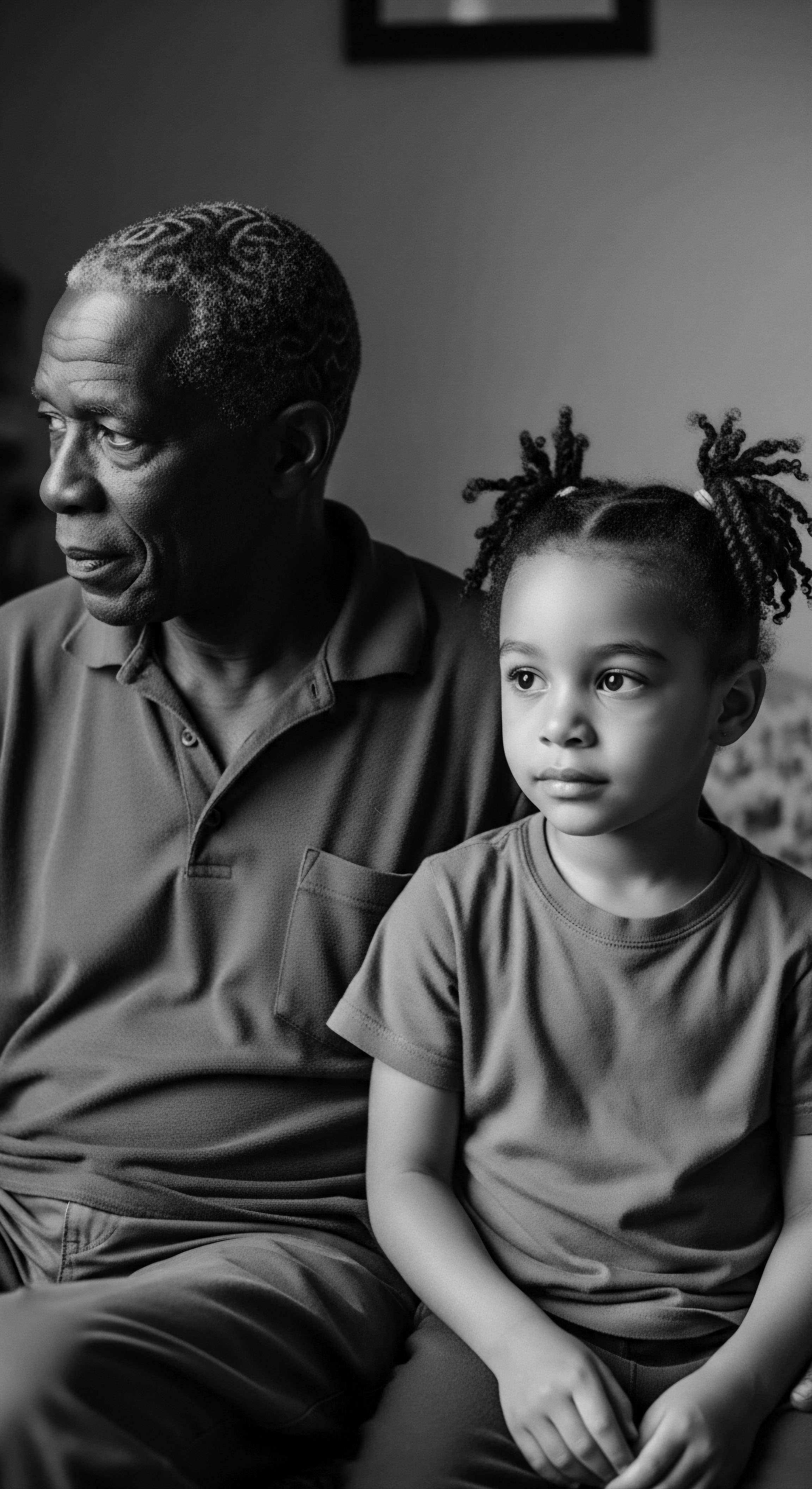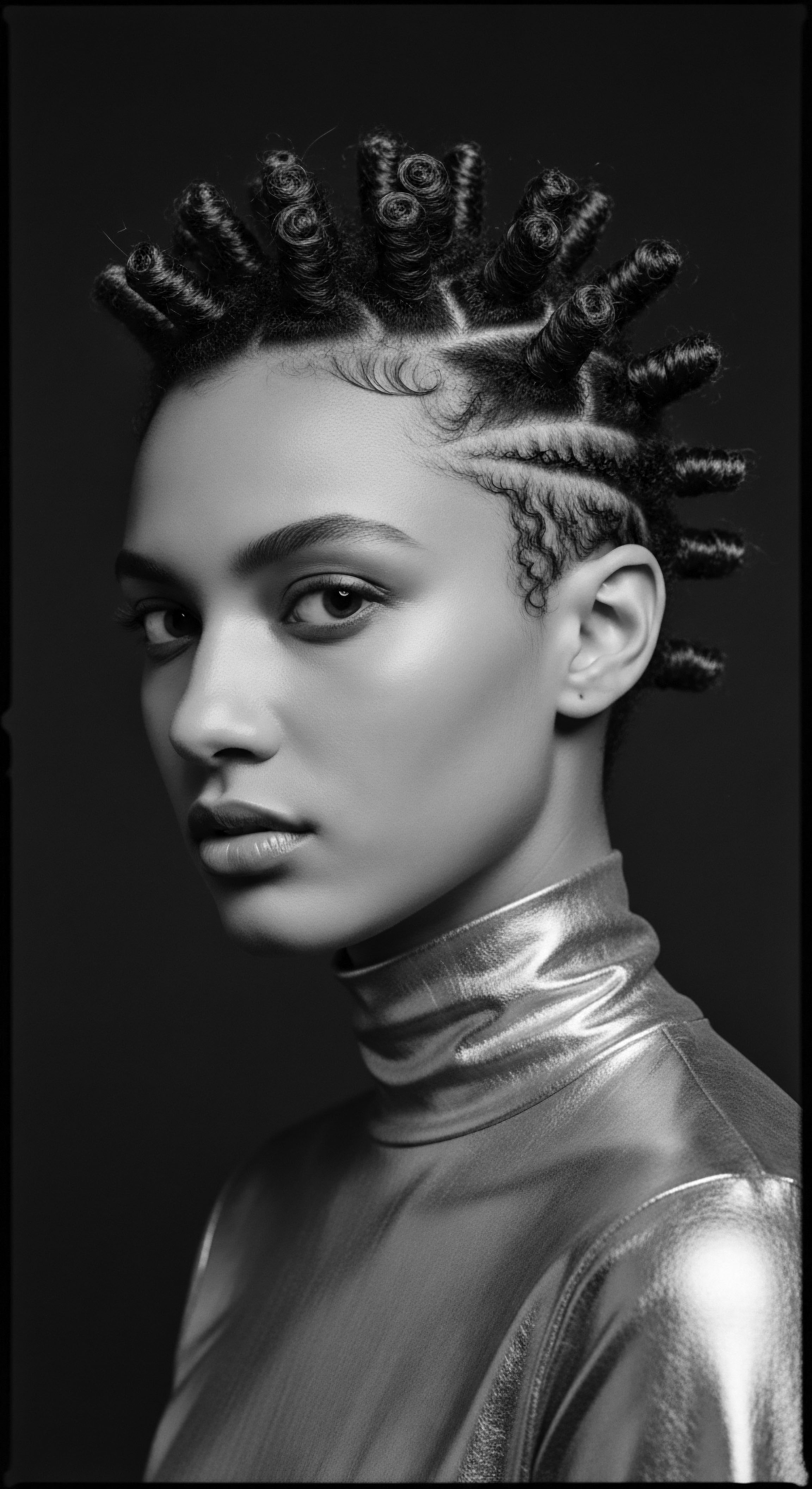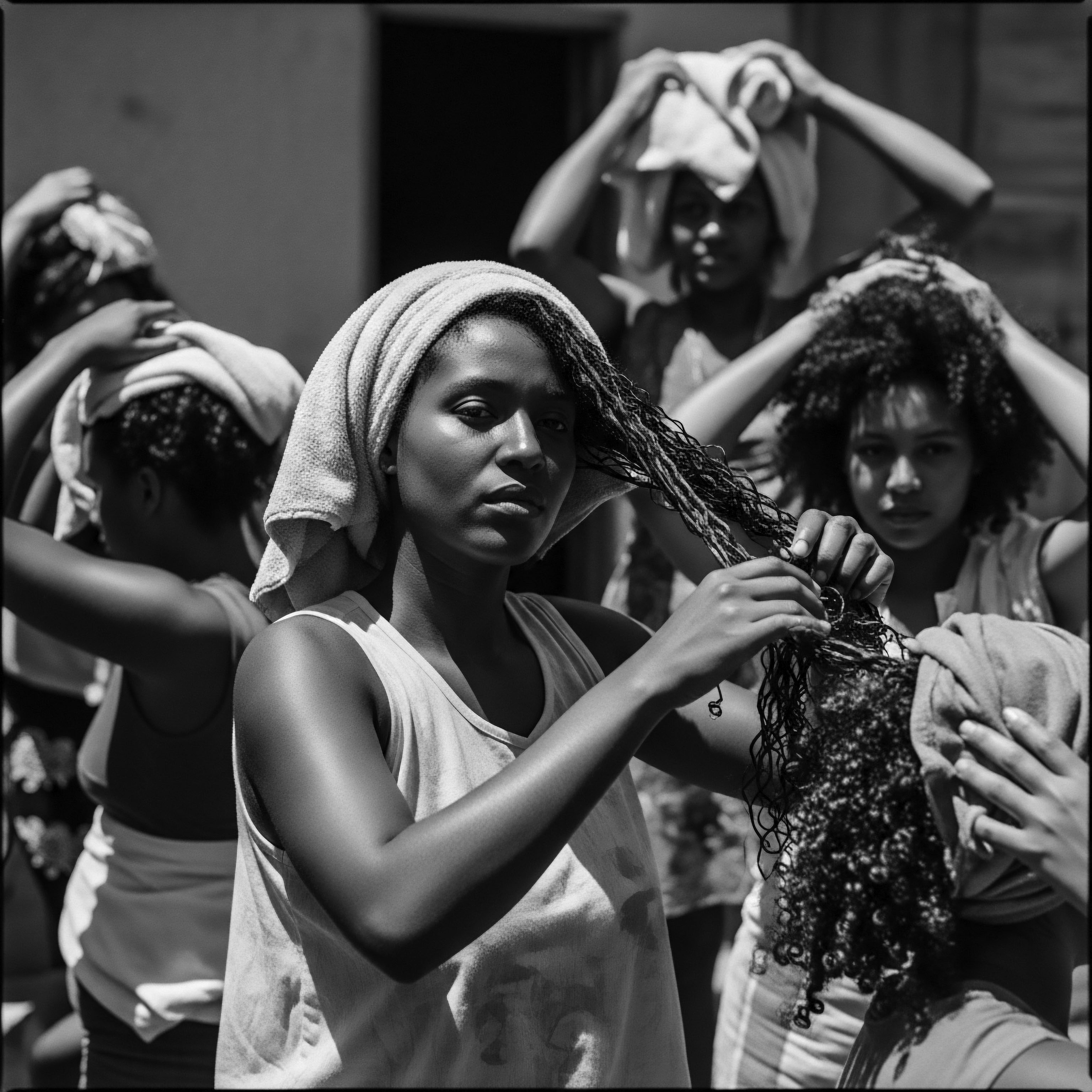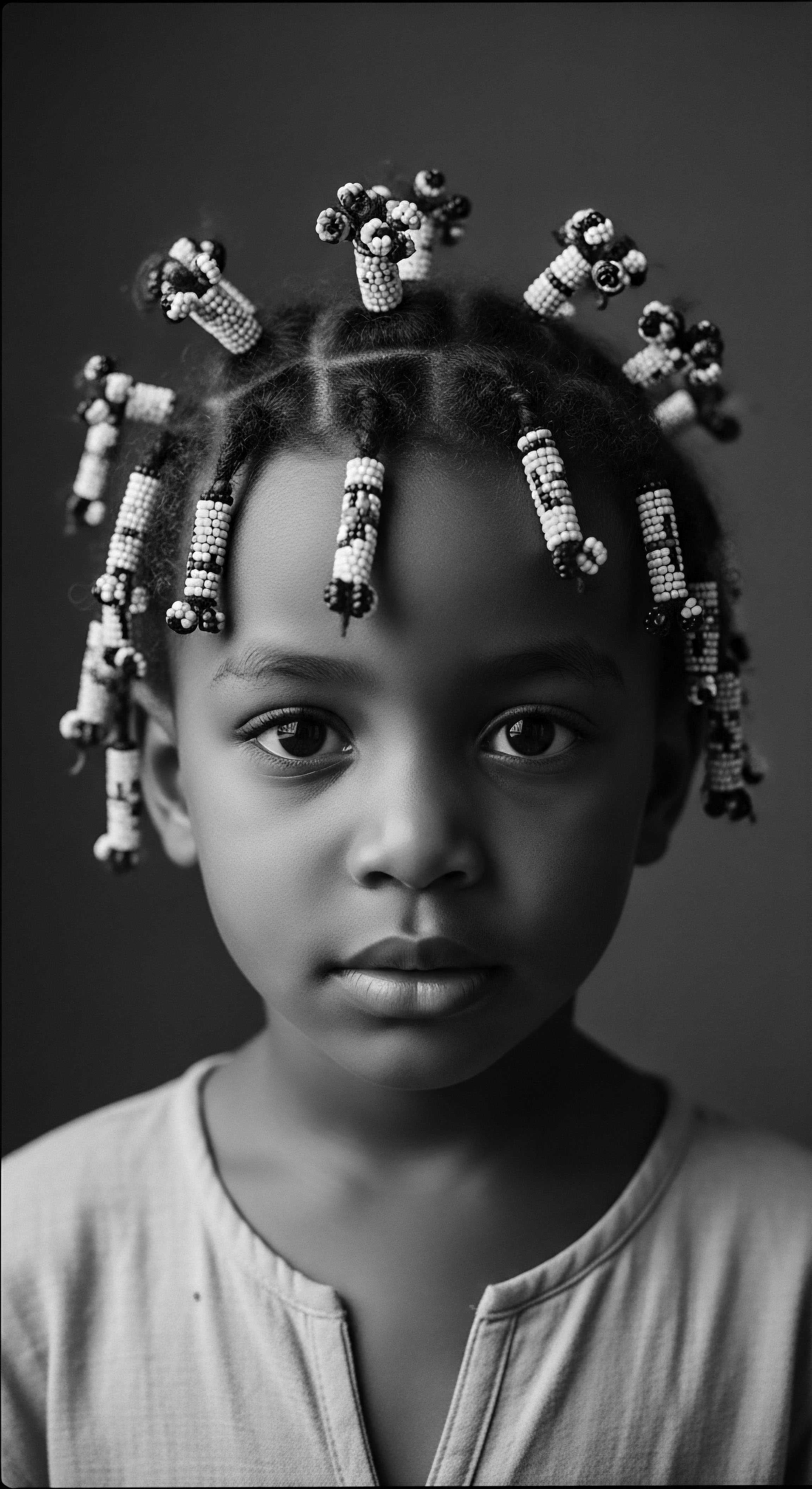
Fundamentals
The understanding of Black Entrepreneurs, particularly when viewed through the unique lens of textured hair heritage, begins as a deeply rooted exploration of self-determination, innovation, and community resilience. This is a story that unfolds not merely as a chronicle of commerce, but as a living archive of identity and care, shaped by ancestral wisdom and a steadfast refusal to be rendered invisible. The primary explanation of a Black Entrepreneur, in this context, reaches beyond conventional economic delineation; it signifies an individual, often a woman, who recognized and responded to the distinct needs of Black and mixed-race communities, especially in the realm of beauty and hair care, where mainstream markets historically failed to serve.
At its simplest, a Black Entrepreneur in this tradition is one who perceives a societal void, understands the inherent value of a neglected cultural practice or physical attribute, and then mobilizes resources, creativity, and communal networks to provide solutions. This delineation is intrinsically tied to the experiences of Black individuals navigating a world that often sought to diminish or devalue their natural hair textures. Early efforts were frequently born from intimate domestic spaces, where knowledge of herbs, oils, and styling techniques passed down through generations formed the foundation of burgeoning enterprises. These ventures were not only about making money; they represented a profound act of affirmation, recognizing the sacred connection between hair and identity within Black communities.
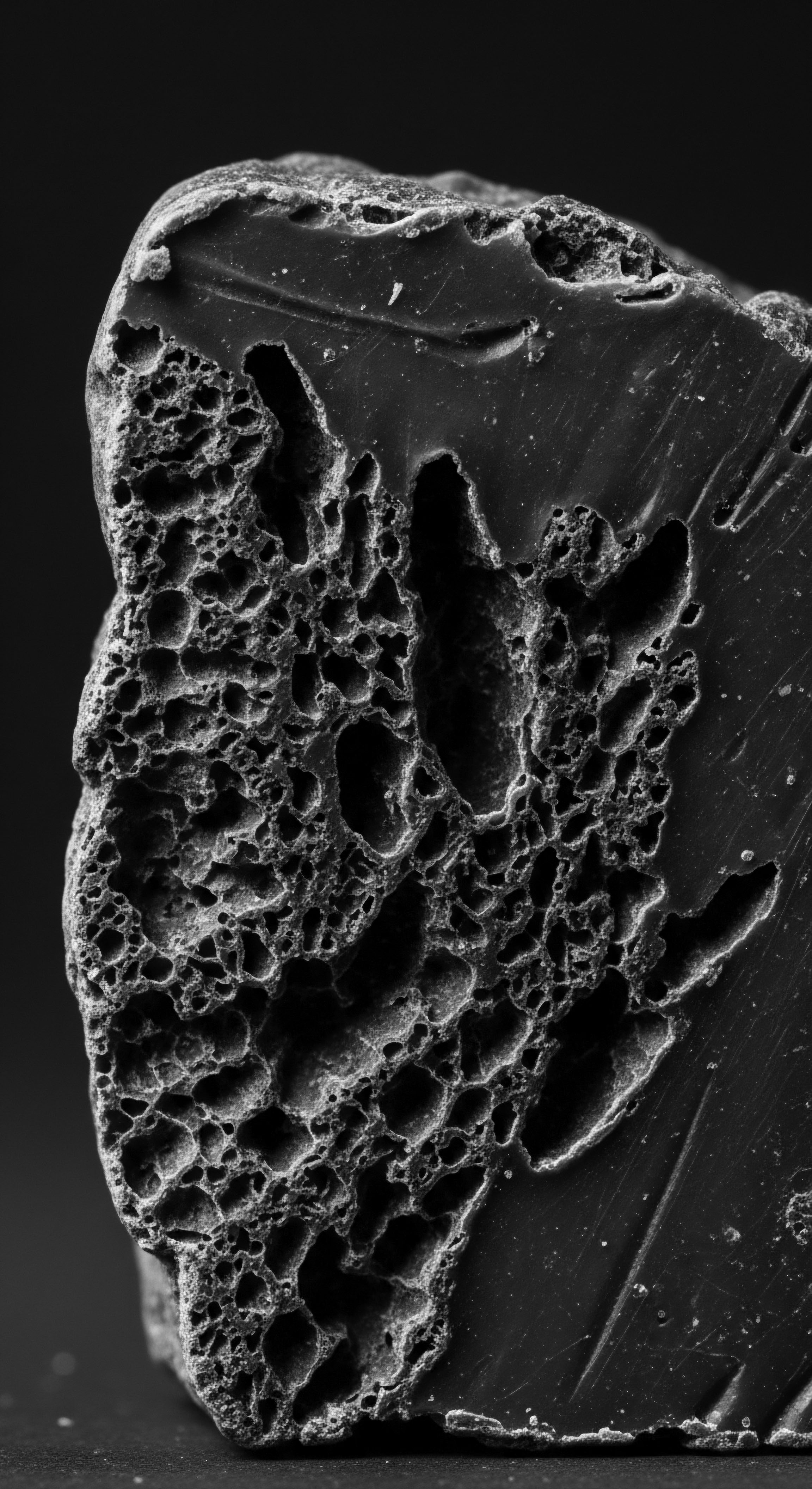
Ancestral Roots of Enterprise
Long before formal businesses took shape, the seeds of Black entrepreneurship in hair care were sown in ancestral practices. In many African societies, hair styling was a sophisticated art and a significant marker of social standing, tribal affiliation, age, and spiritual beliefs. These intricate traditions required specialized tools, ingredients, and expert hands, fostering a rich ecosystem of knowledge and skill.
Even during the transatlantic slave trade and its devastating aftermath, Black people held onto fragments of these traditions, adapting them to new environments and scarce resources. The very act of caring for one’s hair, or another’s, became a quiet act of resistance, a way to maintain dignity and connection to a lost heritage.
Black Entrepreneurs, particularly in the realm of hair care, emerged as vital custodians of cultural identity and economic self-sufficiency.
The fundamental statement of this entrepreneurial spirit lies in its organic genesis, rising from the very communal fabric. Consider the informal economies that existed even under the crushing weight of slavery. Enslaved Black women, for instance, often possessed invaluable knowledge of hair care, a skill that occasionally offered a pathway to small, independent earnings, providing a glimmer of autonomy within an inhumane system (Deborah Gray White, 1985, p. 71).
This historical fact underscores how the earliest forms of Black hair entrepreneurship were not born of capital accumulation, but rather from a deep, communal understanding of self-care and the inherent power within Black hair. This tradition continued after emancipation, with individuals transforming kitchens into makeshift salons, sharing time-honored remedies and techniques passed through generations, solidifying the communal basis of these ventures.
These early enterprises often began with simple yet potent concoctions, formulated from observations of natural ingredients and a keen understanding of textured hair’s unique structure. The goal was to nourish and protect, to promote scalp health, and to style hair in ways that honored its natural inclinations while also allowing for diverse expressions. This foundational period established the very core of what Black Entrepreneurs would represent: a commitment to serving a population consistently overlooked, doing so with ingenuity, cultural reverence, and an unwavering spirit of self-reliance.
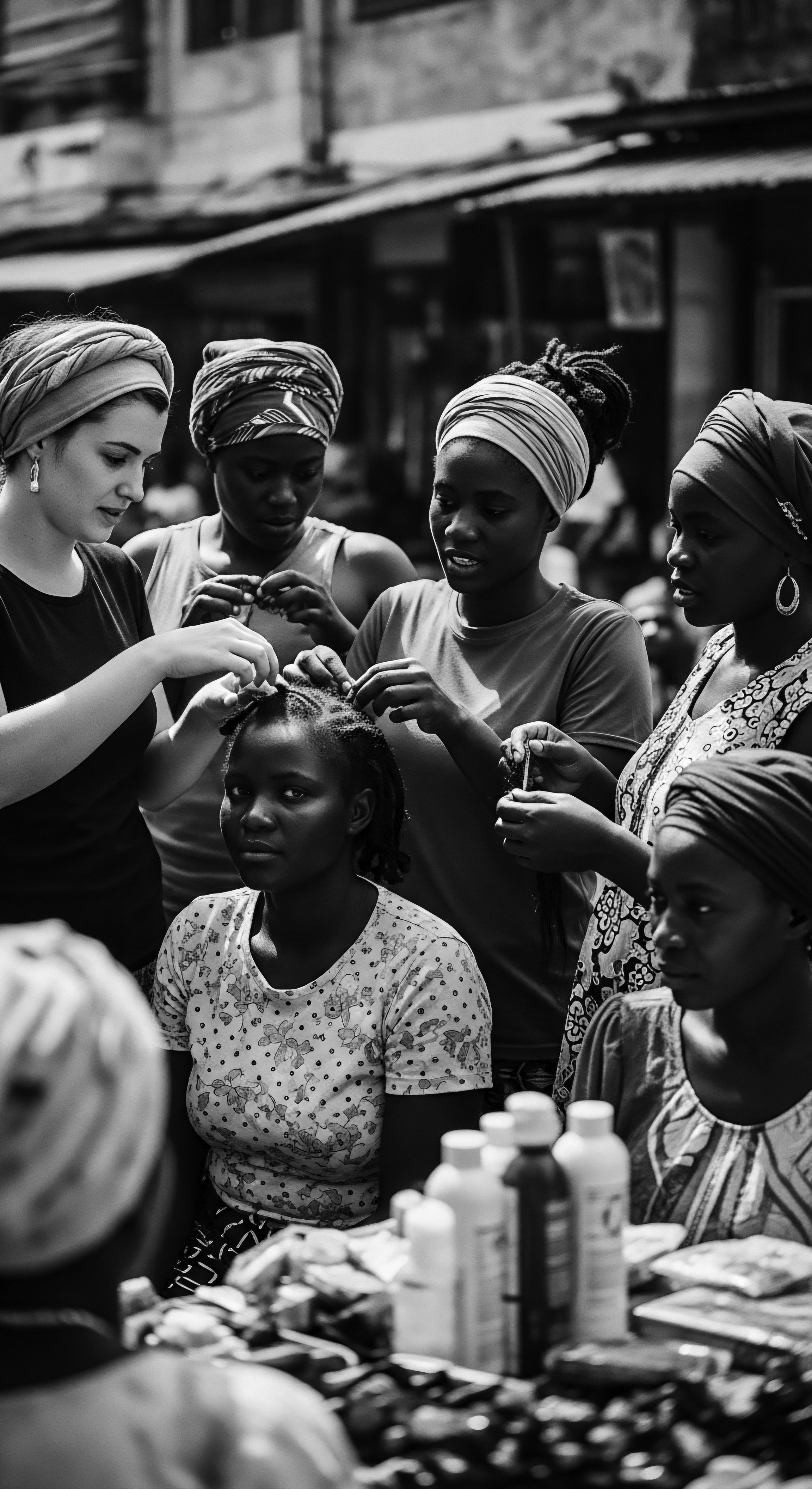
Intermediate
Moving into a more intermediate understanding, the meaning of Black Entrepreneurs expands to encompass their profound societal impact, their role in creating economic pathways, and their challenge to prevailing beauty norms. This perspective reveals how these individuals and their businesses were not merely transactional entities; they served as pillars of social cohesion and spaces of political discourse within segregated communities. Their ventures offered economic independence and fostered collective well-being, transforming hair care into a vehicle for empowerment and cultural preservation.

Building Empires of Dignity
The late 19th and early 20th centuries witnessed the formalization of Black hair care entrepreneurship, spurred by figures like Annie Turnbo Malone and Madam C.J. Walker. Their stories exemplify the elevated meaning of Black Entrepreneurs.
Malone, born in 1869 to formerly enslaved parents, intuitively grasped that hair health could profoundly affect the lives of African Americans. Her scientific curiosity led to the development of scalp preparations and “Hair Grower” products designed to improve hair health and promote growth, a direct response to the specific needs of Black women’s hair textures, often damaged by harsh products or attempts to conform to European beauty standards.
Malone’s establishment of the Poro College Company in St. Louis in 1902 marked a turning point. This institution was far more than a cosmetics school; it provided a comprehensive system of hair and beauty culture. The Poro system trained thousands of “Poro agents,” primarily Black women, in product sales and hair care techniques, creating a widespread network of economic opportunity.
These agents, ranging in age from 16 to 80, traveled across the United States and the Caribbean, bringing tailored hair care solutions directly to homes and communities. This model not only distributed products but also spread knowledge, skill, and a sense of shared purpose, empowering countless women with financial independence during a time of limited opportunities.
Black hair salons, born from necessity and cultural understanding, evolved into irreplaceable sanctuaries for social connection, self-expression, and economic independence.
The significance of these enterprises lies in their duality: they addressed a practical need while simultaneously addressing a cultural and social imperative. Black hair salons, often established in the early 1900s, became essential community hubs. They were places where Black individuals could gather, socialize, discuss politics, and find solace, particularly during periods of racial segregation when other public spaces were inaccessible.
These establishments provided a sanctuary where natural beauty was affirmed and celebrated, offering a counter-narrative to prevailing Eurocentric beauty ideals. The stylists and barbers operating these businesses were not mere service providers; they became trusted figures, custodians of culture, and facilitators of community connection.

Innovation as a Cultural Response
- Madam C.J. Walker’s System ❉ Born Sarah Breedlove, Walker, a former Poro agent, adapted and expanded upon the entrepreneurial blueprint, developing her “Walker System” of hair care. Her products, including shampoos, pomades, and a specialized hot comb, targeted scalp health and hair growth, providing effective care for textured hair. Her success made her America’s first recognized self-made female millionaire, a testament to the immense unmet need she addressed and the robust business model she cultivated.
- Lyda Newman’s Brush ❉ An often-overlooked inventor, Lyda Newman patented an improved hairbrush in 1898. Her design, featuring firm, synthetic bristles and ventilation, was specifically suited for textured hair, offering better airflow and easier cleaning than previous animal-hair brushes. This invention streamlined hair care practices for Black women, making daily routines more efficient.
- Garrett Morgan’s Relaxer ❉ In 1909, Garrett A. Morgan, a notable African American inventor, accidentally discovered the first chemical hair relaxer. While his invention, initially aimed at industrial applications, led to hair straightening products that could be viewed through a complex historical lens regarding Eurocentric beauty pressures, its existence fundamentally changed the landscape of Black hair styling, providing a permanent solution for straightening textured hair.
These innovations, coupled with strategic distribution models like door-to-door sales and beauty schools, illustrate a deeper meaning of Black entrepreneurship. It was a conscious act of filling market gaps and simultaneously building social capital. The businesses served as informal community centers, where individuals could share experiences, discuss societal issues, and strengthen communal ties. Even during economic hardships, Black-owned hair salons often remained thriving businesses within their neighborhoods, underscoring their essential role beyond mere commercial exchange.
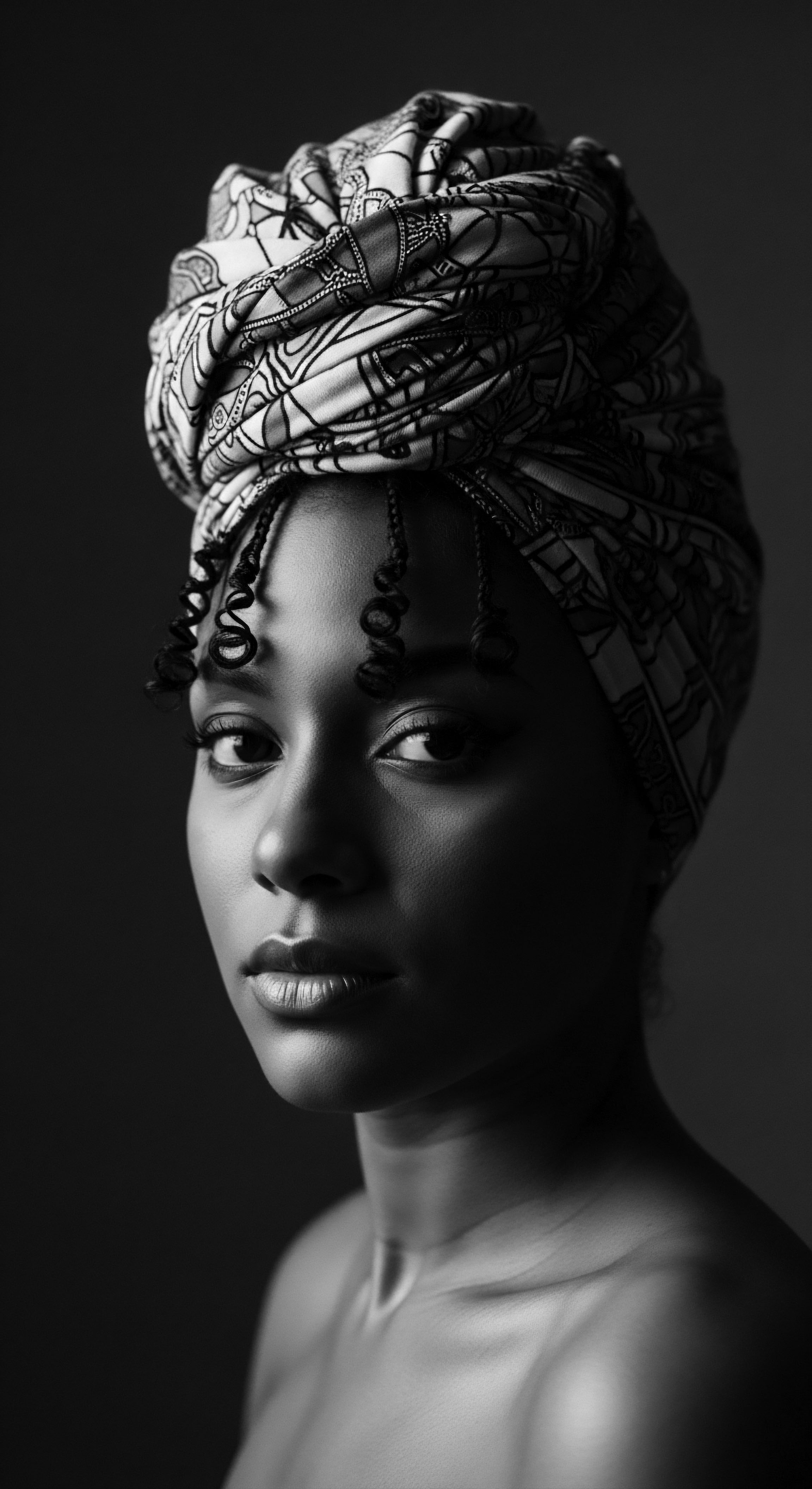
Academic
The academic elucidation of Black Entrepreneurs, specifically within the sphere of textured hair heritage, delineates a complex socio-economic phenomenon rooted in both systemic marginalization and profound cultural agency. This understanding moves beyond anecdotal narratives to examine the structural forces that necessitated the emergence of Black-owned beauty enterprises, and the intricate ways these businesses functioned as sites of resistance, identity construction, and economic self-determination. The meaning of “Black Entrepreneurs” in this scholarly context represents a distinct form of capitalism, often characterized by communal investment and a reciprocal relationship with the consumer base, fundamentally different from mainstream capitalist models that largely ignored the needs of Black consumers.
At its core, this academic interpretation posits that Black entrepreneurs, particularly in the beauty industry, arose as a direct, adaptive response to economic exclusion and racialized beauty standards. During the late 19th and early 20th centuries, as Black individuals transitioned from slavery, they faced a societal landscape marked by segregation, discrimination, and a profound lack of access to mainstream economic opportunities. Concurrently, dominant beauty paradigms, steeped in Eurocentric ideals, rendered Black hair “undesirable” or “problematic,” leading to an absence of appropriate products and services.
This created an unmet demand of staggering proportions, a vacuum that Black innovators, often women, courageously stepped in to fill. The ensuing enterprises were not merely commercial ventures; they were mechanisms of survival, community building, and cultural affirmation.
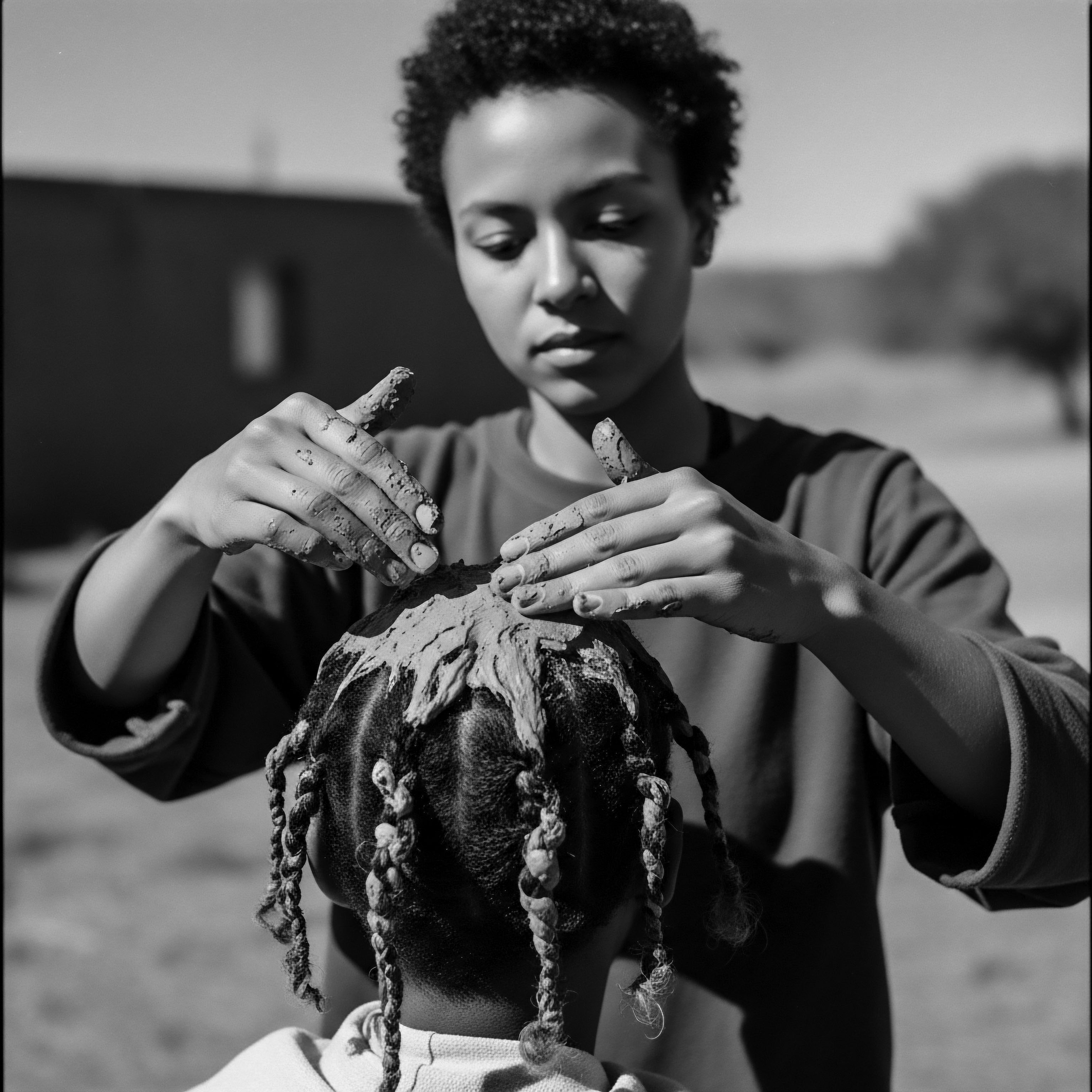
The Poro College Model: A Case Study in Communal Capitalism
To truly comprehend the depth of this entrepreneurial model, one must examine the legacy of Annie Turnbo Malone and her Poro College Company. Her business served as a multifaceted institution that transcended typical commercial endeavors, embodying a unique form of communal capitalism. Malone, a chemist, developed her products through scientific inquiry, creating formulations tailored to the specific biological characteristics of Black hair, addressing common issues such as dryness and breakage. This scientific approach, coupled with an intimate understanding of Black hair’s elemental biology, allowed her to offer genuinely effective solutions that resonated deeply within the community.
The Poro system’s innovation extended beyond product development to its sales and educational model. Malone established a vast network of “Poro agents,” predominantly Black women, whom she trained extensively not only in the application of her products but also in business practices, financial literacy, and personal grooming. This training transformed these women into independent business owners, empowering them with a means of livelihood and social standing that was rare for Black women during that era.
Poro College itself, named after a West African secret society symbolizing physicality and spirituality, was a physical manifestation of this communal ethos, providing a safe gathering place for Black organizations and individuals denied access elsewhere. It offered lodging, education, and employment, serving as a hub for both economic and social advancement.
The pedagogical approach at Poro College connected modern scientific understanding with a reverence for ancestral hair care practices. While embracing contemporary chemistry, Malone implicitly built upon the historical knowledge of Black women who had, for generations, adapted and innovated hair care remedies with natural ingredients. The success of Poro College, which made Malone one of the wealthiest African American women during the 1920s, stemmed from this holistic approach: providing effective products, creating extensive economic opportunities, and nurturing a sense of collective dignity and pride.
Black entrepreneurship in the hair industry, particularly through the Poro system, functioned as a powerful economic counter-narrative, generating wealth and independence within segregated communities.
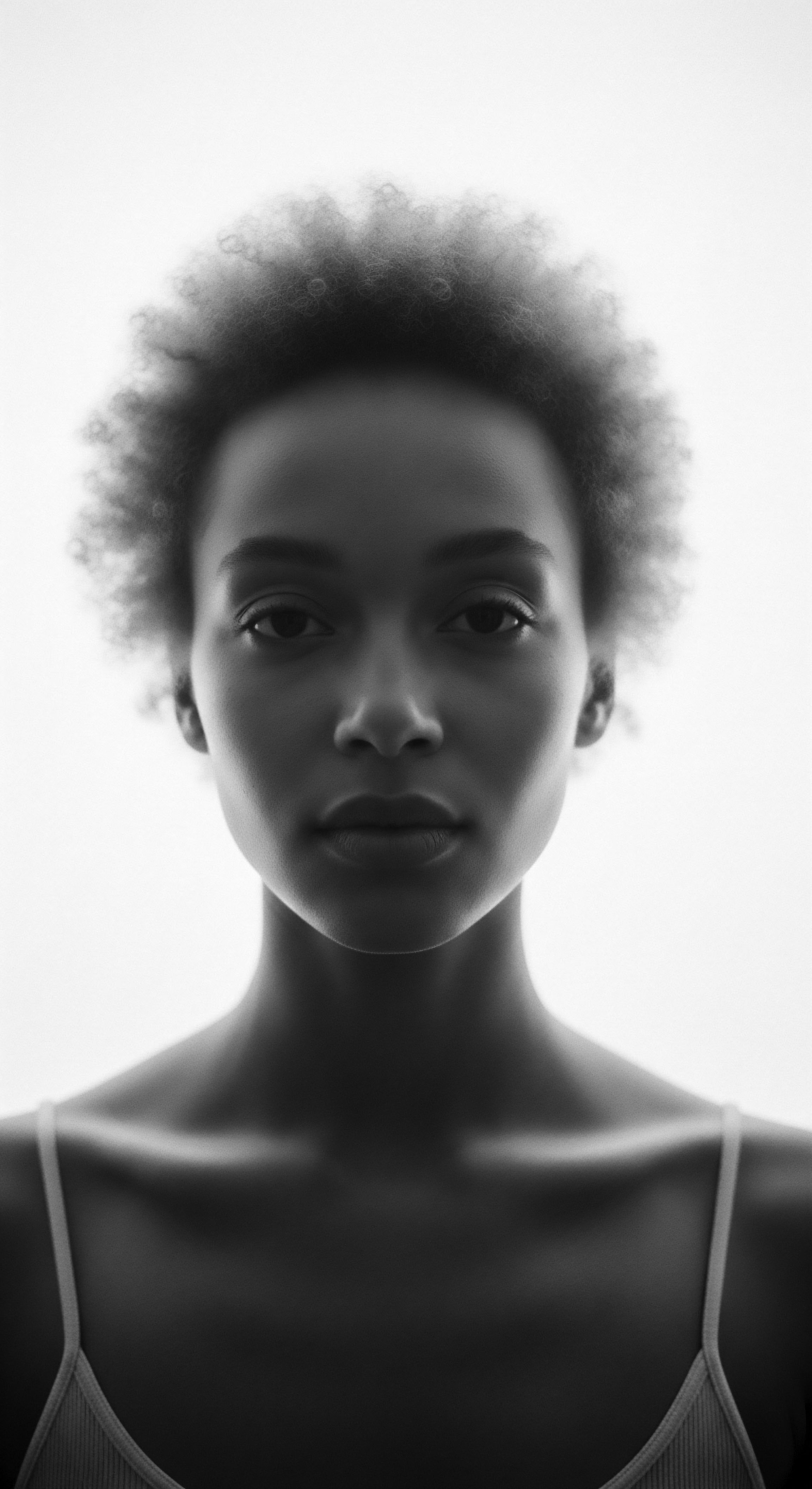
Economic Agency and Societal Challenges
The enduring impact of Black Entrepreneurs on textured hair heritage is also quantifiable. Research indicates that Black women consistently spend more on hair care products and services than other demographic groups. For example, Black women spend approximately six times more on hair care than other ethnicities, contributing significantly to a multi-billion dollar industry.
Despite this immense purchasing power, Black-owned ethnic hair product companies comprise a disproportionately small share of the overall market, often around 3%. This striking disparity reveals the persistent systemic barriers, such as limited access to funding and retail shelf space, that Black entrepreneurs continue to face, even in an industry they largely created and sustain.
The economic activity generated by these enterprises extends beyond mere product sales. Black hair salons, often operating as small businesses, have historically served as crucial economic anchors in Black neighborhoods, retaining wealth within communities and fostering local employment. These establishments frequently weather economic downturns more successfully than other local businesses, a testament to their deep integration into the community’s social and cultural fabric. Furthermore, these spaces historically became incubators for political discourse and activism, providing a platform for organizing and resistance during periods like the Civil Rights Movement.
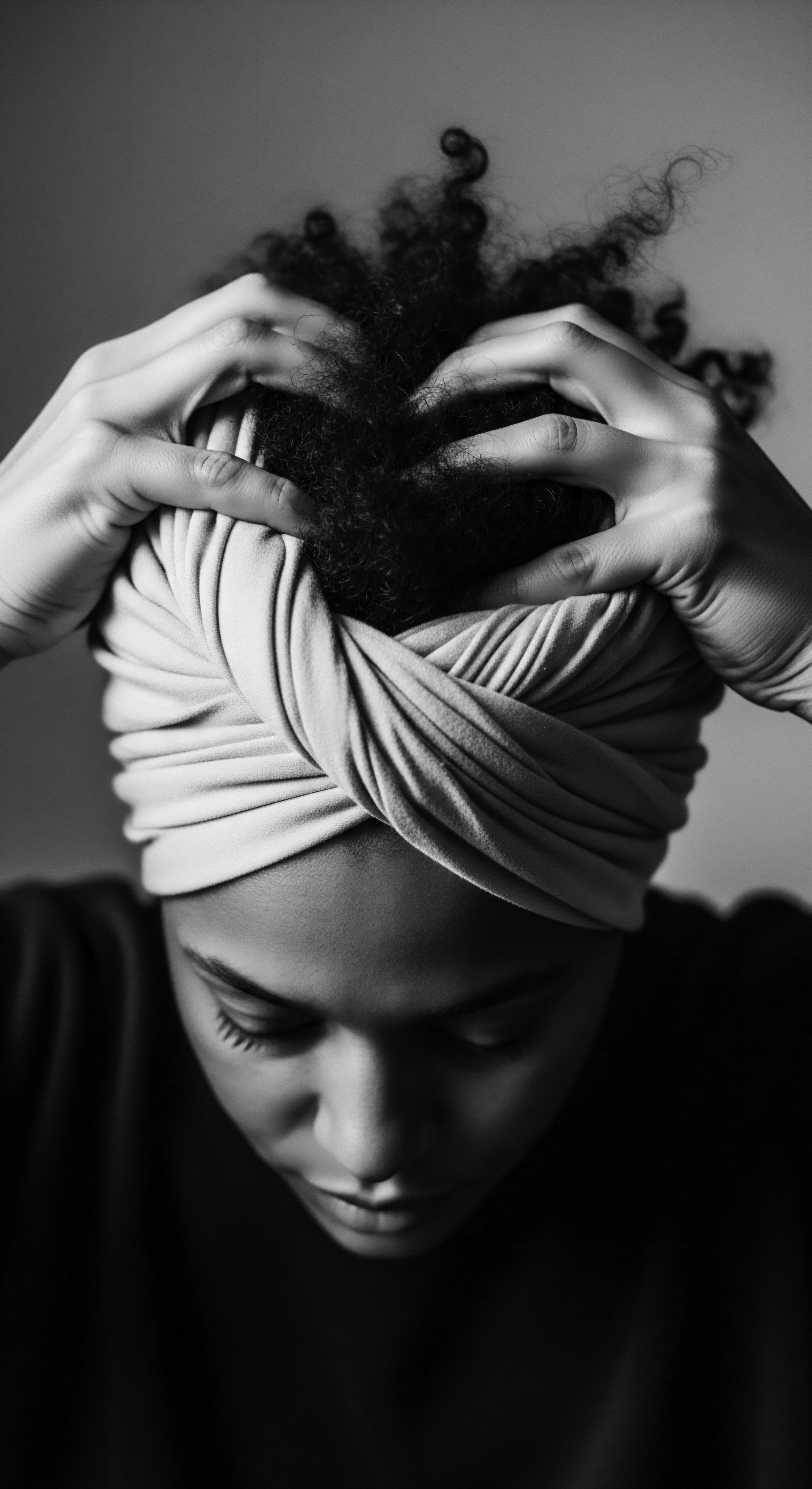
Interconnected Incidences: Hair as a Site of Identity and Entrepreneurship
The academic lens also considers how Black entrepreneurship in hair care interweaves with evolving perceptions of Black identity. The “Black is Beautiful” movement of the 1960s, for instance, spurred a resurgence in natural hairstyles and created new demands for products that supported coily and kinky textures without altering them chemically. Black entrepreneurs responded by developing specialized products and techniques, solidifying their role as responsive and culturally attuned innovators. This adaptability showcases a fluidity in business strategy, moving with the cultural tides of self-acceptance and affirmation.
The challenges these entrepreneurs overcame were not solely commercial; they were deeply personal and societal. The struggle against Eurocentric beauty standards, which historically penalized natural Black hair in professional and social settings, meant that Black hair care entrepreneurs were not just selling products; they were selling dignity, acceptance, and a pathway to self-expression. This contextualizes their meaning as more than business people; they were social reformers, community builders, and advocates for cultural pride. The continued efforts of contemporary Black hair care brands to prioritize natural ingredients and celebrate diverse textures echo the foundational principles laid down by pioneers like Malone and Walker, demonstrating a continuous lineage of purpose-driven commerce.
- Community Economic Circulation ❉ Black-owned hair care businesses, from small salons to large product manufacturers, have historically retained and circulated capital within Black communities, creating a localized economic ecosystem where profits supported families, neighborhoods, and other Black enterprises. This contrasts sharply with external industries that extracted wealth without reinvestment.
- Cultural Authenticity in Product Development ❉ The historical tendency for mainstream beauty companies to overlook or misinterpret the needs of textured hair created a vacuum filled by Black entrepreneurs. Their products were developed with an intimate understanding of Black hair’s unique structure and cultural significance, leading to truly effective and culturally resonant solutions, often using traditional ingredients or adapting ancestral methods.
- Social Spaces for Resilience ❉ Beyond commerce, Black hair salons and barbershops served as vital social and political centers where information was exchanged, collective action was organized, and community bonds were fortified, especially during periods of intense segregation. These spaces were havens for Black individuals to discuss issues freely and receive support.
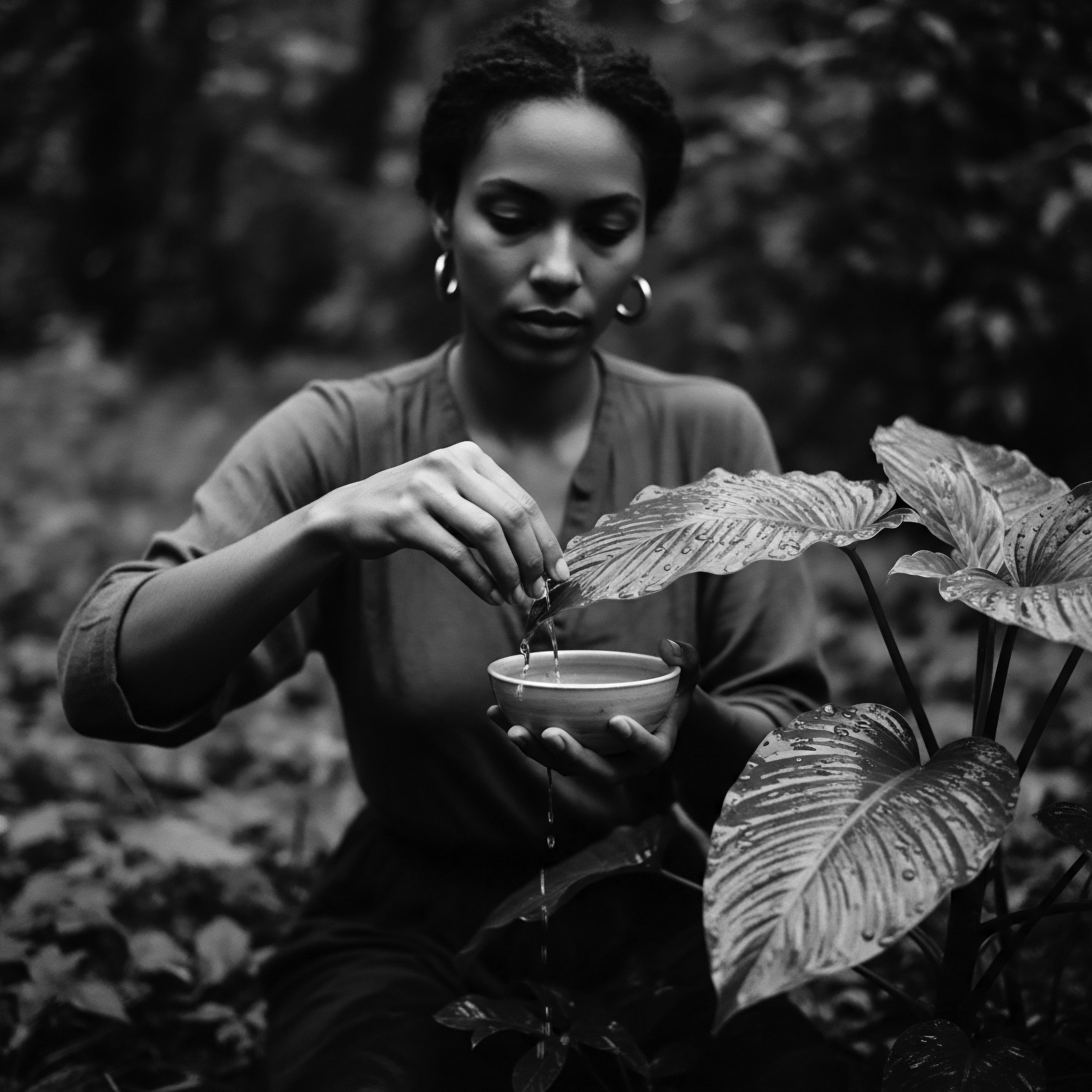
Reflection on the Heritage of Black Entrepreneurs
The journey of Black Entrepreneurs, particularly as woven into the narrative of textured hair heritage, stands as a profound testament to the enduring spirit of human ingenuity and resilience. This is a story that breathes with the whispers of ancestral wisdom, carried forward on the very strands of hair that have been cherished, adorned, and, at times, unjustly judged. From the earliest days when caring for one another’s hair became a sacred practice of survival and cultural preservation, to the pioneering figures who built monumental empires from kitchens and dreams, the essence of Black entrepreneurship in this sphere has always been tethered to a deeper purpose. It speaks of a people who, when denied access and validation, turned inward to their own traditions and outward to their communities, finding boundless strength to create.
The story is one of reclaiming autonomy, transforming necessity into innovation, and beauty into a powerful statement of selfhood. It’s a continuous thread, connecting ancient African communal care rituals to the bustling salons of today ❉ each knot and coil holding generations of knowledge, struggle, and triumphant self-expression. The definition of a Black Entrepreneur in this context transcends mere business acumen; it embodies a profound cultural understanding, a sensitive ear to the needs of textured hair, and a soulful commitment to wellness that honors every curl, every twist, every loc as a part of a vibrant, living heritage. This ongoing legacy reminds us that true wealth is not just in financial accumulation, but in the preservation of identity, the fostering of community, and the persistent, beautiful act of self-love.

References
- Bundles, A. (2001). On Her Own: The Life and Times of Madam C.J. Walker. Scribner.
- Byrd, A. D. & Tharps, L. D. (2001). Hair Story: Untangling the Roots of Black Hair in America. St. Martin’s Press.
- White, D. G. (1985). Ar’n’t I a Woman?: Female Slaves in the Plantation South. W. W. Norton & Company.
- Coleman, E. (2006). A Way Out of No Way: The Story of Black Entrepreneurship in America. Rutgers University Press.
- Gill, T. M. (2010). Beauty Shop Politics: African American Women’s Activism in the Beauty Industry. University of Illinois Press.
- Pope, J. R. (2003). Black Beauty: A History of Fashion and Beauty in Black America. Rizzoli.
- Mills, E. R. (2011). The Business of Black Hair: The History of the Beauty Industry and the African American Community. Xlibris Corporation.
- Patton, T. D. (2006). “African American Hair and Care: From Self-Image to Global Market.” Journal of Black Studies, 36(6).

